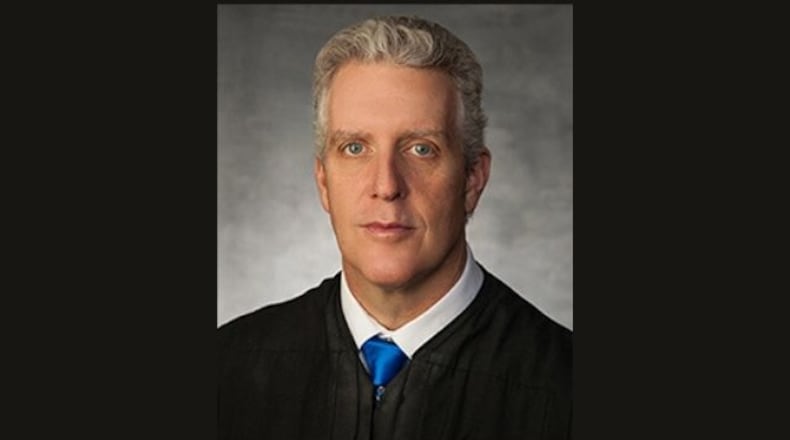“If people drawing the boundaries know who is going to be looking over their shoulders, that might provide some incentive to be open to different boundaries that they might otherwise been,” O’Donnell said.
He added, “I promise no one anything other than a fair consideration of the facts and the law and the evidence.”
“I rue the fact that we have to talk about the court in partisan terms because when we do that, we cheapen the nature of the judicial branch. The signature characteristic of that branch is independence, so I promise to be an independent, fair-minded jurist open to all arguments and the results, I promise, will be my good faith interpretation of the what the law is in a particular case,” O’Donnell said.
O’Donnell is critical of decisions made by his opponent, incumbent Justice Sharon Kennedy, a Republican. He points to a dissent Kennedy authored in May 2020 in a case involving the constitutionality of a 2015 law that allowed the state of Ohio to take over Youngstown City Schools. Kennedy’s opinion asserts that a section of the constitution leaves it up to the legislature, not the courts, to enforce legislative procedural rules.
O’Donnell said that amounts to a “let’s just trust legislators” to uphold their oath of office, but branches of government are constrained by the state and federal constitutions and it’s the court’s duty to hold them accountable. “This is something I fear that Justice Kennedy has essentially abandoned,” he said.
He also criticized Kennedy’s position on two cases in which she would have allowed utilities to keep $500 million in fees that were ruled improper.
He said the high court rulings on Home Rule cases — the right for cities to self-govern — have been inconsistent in the past decade. “I detect a bit of partisanship in the home rule rulings that I’ve seen over the past decade or so.”
O’Donnell said he supports criminal justice reforms being led by Ohio Supreme Court Chief Justice Maureen O’Connor, a Republican. O’Connor has been pushing for changes to how courts impose bond conditions and for better data collection on how courts administer justice across the state.
O’Donnell said better data collection will reveal whether there are inconsistencies or biases.
O’Donnell declined to pledge that he’d step aside on cases before the court where a party has donated more than $1,000 to his campaign in the prior 12 months. Nonetheless, he said he recognizes the problem and perception. He said on a case by case basis, he is open to recusal if someone requests it.
O’Donnell did not point to certain cases that would illustrate what kind of judge he is. But he noted that he treats those convicted in his courtroom with a measured, even tone and doesn’t ridicule, berate or demean anyone.
In his most recent race for Ohio Supreme Court in 2016, O’Donnell lost to Republican Pat Fischer by 22,470 votes out of more than 4 million cast. O’Donnell said his opponent this year, Kennedy, isn’t an unstoppable political force. “This is a real race.”
Credit: Jim Baron
Credit: Jim Baron
John P. O’Donnell
Hometown: Lakewood
Family: Married to Therese O’Donnell; five children.
Political Party: Democrat
Political Experience: Cuyahoga County Common Pleas Court Judge, 2002 to 2005 and 2007 to current; has handled specialized dockets for commercial litigation and felony defendants with serious mental illnesses. Attorney since 1993.
Education: Bachelor’s degree, Miami University; law degree, Cleveland State University.
About the Author


